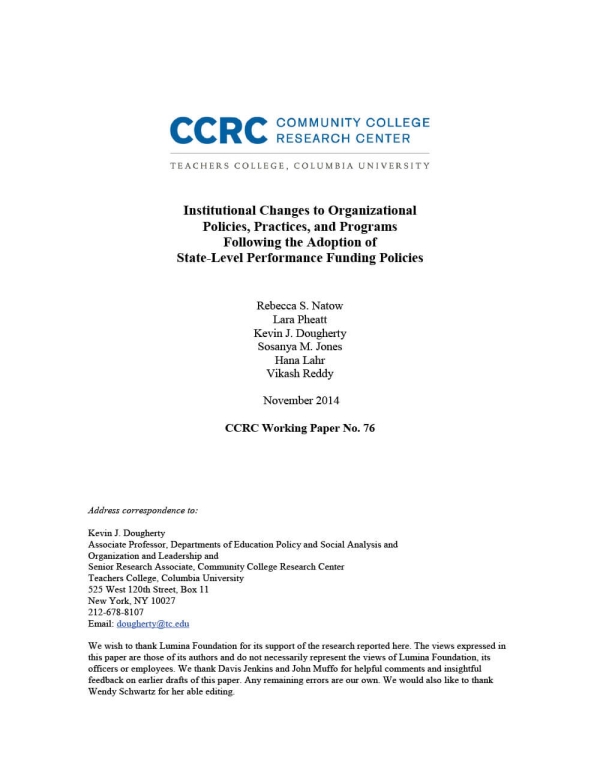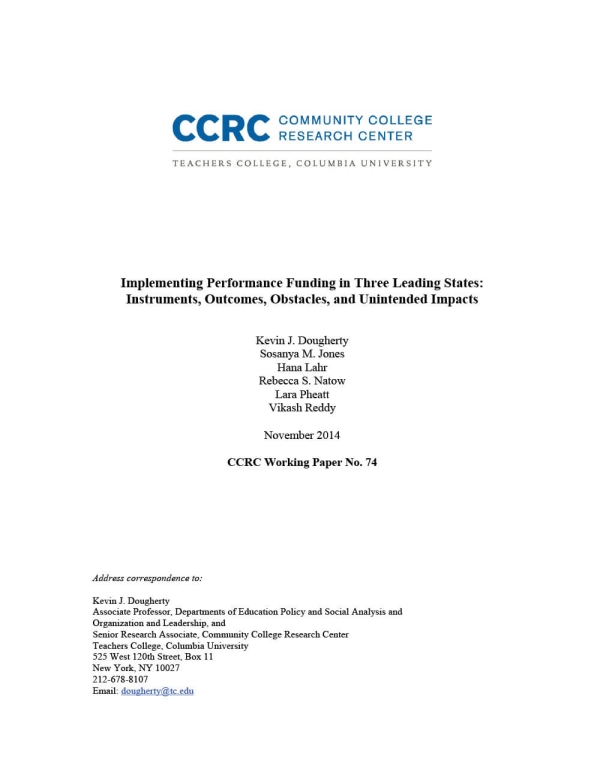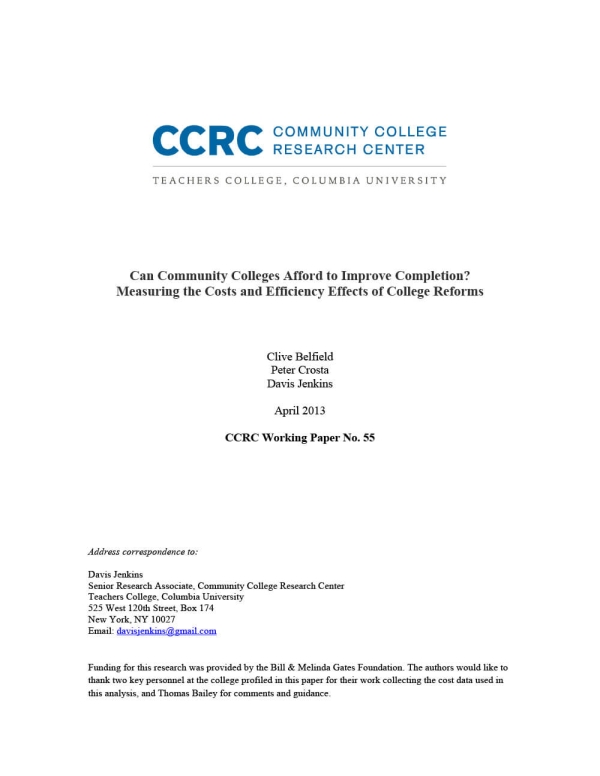Institutional Changes to Organizational Policies, Practices, and Programs Following the Adoption of State-Level Performance Funding Policies

This paper examines the ways that universities and community colleges in Indiana, Ohio, and Tennessee have altered their policies, practices, and programs to respond to the demands of performance funding programs.
Policy Instruments in Service of Performance Funding: A Study of Performance Funding in Three States

This study examines the primary policy instruments through which state performance funding systems influence higher education institutions in Indiana, Ohio, and Tennessee.
Implementing Performance Funding in Three Leading States: Instruments, Outcomes, Obstacles, and Unintended Impacts

This paper summarizes findings from a large study on the implementation and impacts of performance funding in three states that are regarded as leaders in that movement: Indiana, Ohio, and Tennessee.
Performance Funding for Higher Education: Forms, Origins, Impacts, and Futures

This article reviews the forms, extent, origins, implementation, impacts (intended and unintended), and policy prospects of performance funding.
Can Community Colleges Afford to Improve Completion? Measuring the Costs and Efficiency Effects of College Reforms

This paper introduces a model that uses transcript data matched to credit-level cost data and funding formulae to calculate the implications for efficiency of reforms intended to improve completion rates.
